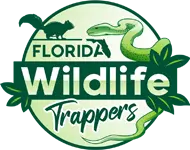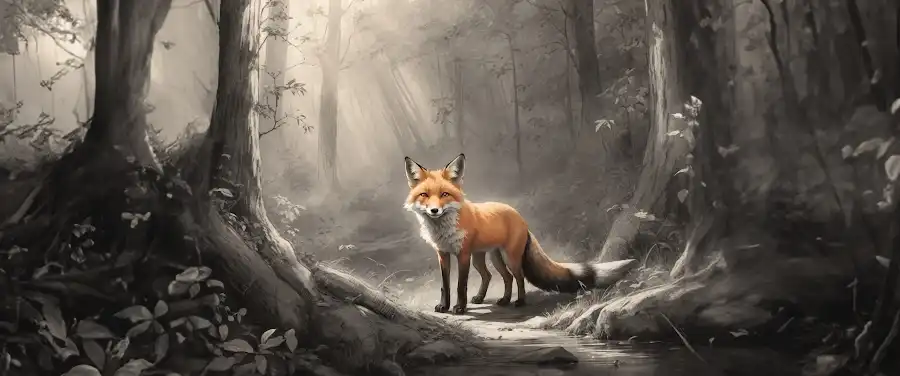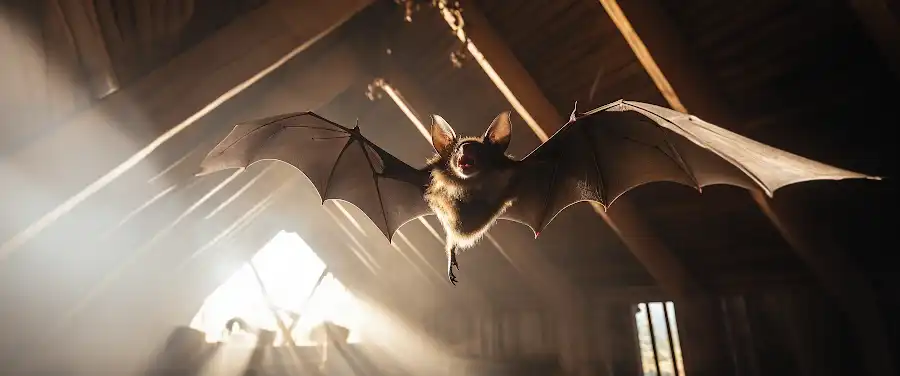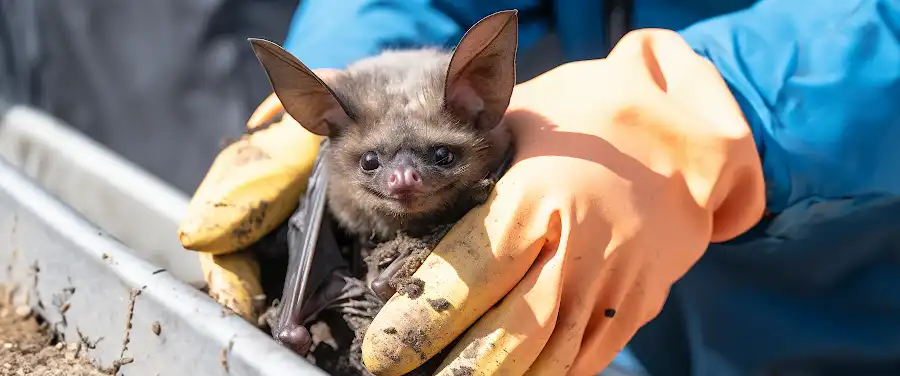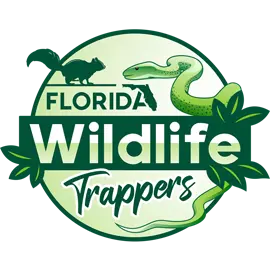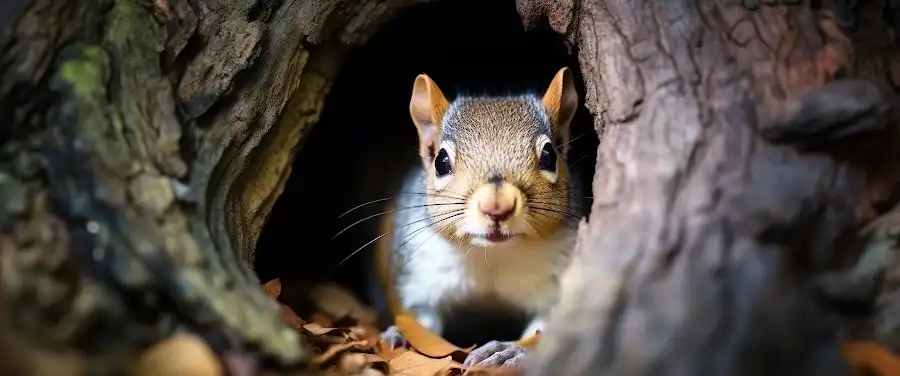
Gather round, homeowners and lovers of all things cozy and serene. It seems there’s a secret menace scampering around our neighborhoods, threatening to disrupt the peace and tranquility within our homes. Yes, you’ve guessed it right – it’s the squirrels. Now, before you furrow your brows in surprise or disbelief, let’s set the record straight. While these fuzzy-tailed critters seem harmless and even charming as they gleefully bound around our parks and yards, the story takes on a slightly less warm and fuzzy turn when they find their way into our homes.
Contrary to the popular belief that squirrels are mere harmless creatures, these adorable critters can potentially cause significant property damage. Surprised? Don’t be. They may seem small and innocent, but their natural instincts for survival, coupled with the new landscapes they encounter inside our homes, may turn your property into their playground causing unintentional destruction. It’s somewhat surreptitious, like discovering the polite, sweet-talking neighbor kid has been the one graffiti-ing your pristine white walls all this time.
Unraveling this hidden truth about how squirrels can damage your home and yard isn’t meant to create panic. Rather, it’s about understanding that even the most unassuming creatures can disrupt our lives if we don’t manage our interactions with them properly. Like most things in life, knowledge is power. In the case of our bushy-tailed friends, being aware of the potential harm they can cause is the first step to secure your homes. After all, acknowledging a problem is the first step towards solving it, so arm yourselves with the facts before you underestimate the common assumptions about squirrels. Stay tuned as we swing into the details of how squirrels can end up being uninvited guests causing domestic pandemonium, and most importantly, how to prevent this clash between human and nature from happening in the first place.
Having sizzled your curiosity, let’s shift gears for a moment and delve into understanding what types of squirrels are commonly found in homes, causing a ruckus. Is it a particular breed or species, or are all squirrels equally likely to turn your peaceful abode into their personal amusement park? Keep reading to find out.
What Attracts Squirrels to Your Home?
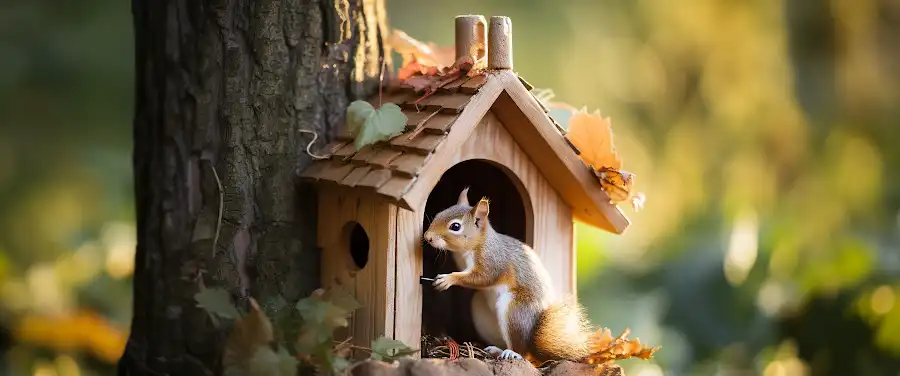
Most homeowners love to maintain a healthy balance with nature. However, when nature literally chews a way into your home, it can become a real nuisance. We’re talking about skittish, busy-bodied squirrels. But why do our homes become so attractive to these furry critters? The primary reasons are the availability of food sources and a warm shelter that our homes can provide.
Squirrels, like us, need food to survive and breed. Seeds, nuts, and bird feeders in our yards provide an attractive buffet for these critters, inviting them to set up camp in and around your property. In addition, our homes offer warm, safe, and dry shelters that are ideal for the squirrel’s nesting habits, especially during their breeding seasons, which occur twice a year.
Are Certain Homes More Attractive to Squirrels?
Yes, indeed. Certain factors can make some houses more prone to a squirrel invasion than others, be it environmental factors or specific landscape features. Homes located near parks or forests are at a higher risk due to their proximity to the squirrel’s natural habitat.
Your home’s features also play a significant role in their attraction. Squirrels are excellent climbers and leapers, so homes with tree branches hanging over rooftops or power lines close by provide an easy access route. Moreover, homes with flat roofs, attic vent openings, or any small holes in the exterior can be gateways for these creatures. In fact, as reported by the Humane Society, squirrels can squeeze through openings as small as 1.5 inches in diameter!
So, if you live in close proximity to a large population of squirrel-friendly trees, or your home has lots of nooks and crannies, don’t be surprised if you find yourself playing host to some unsolicited squirrel tenants.
Next, let’s explore the impact these creatures can have on your property and steps you can take to prevent any potential damage. The key to managing this issue is to understand their behavior and take appropriate measures before it becomes a more significant problem. By doing so, you can maintain a balance between living harmoniously with nature and protecting your property.
How Can Squirrels Damage Your Home?
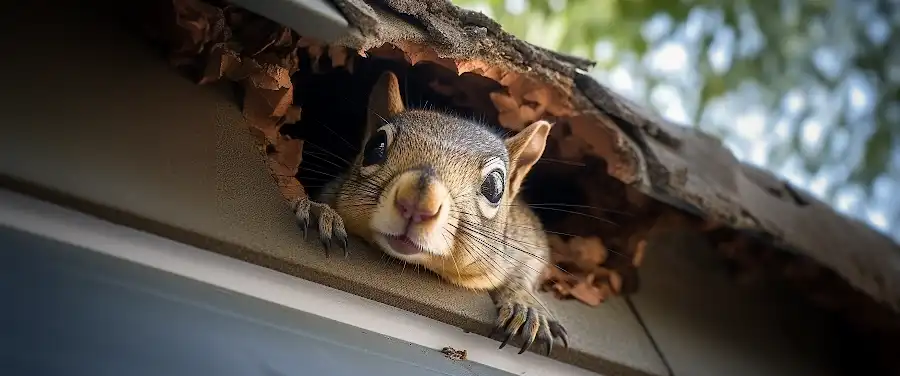
It’s a charming sight to watch squirrels scurrying around in parks, but they can become less appealing when they sneak into your home. Little do you know, these cute critters are cunning little architects that can inflict substantial damage to the interiors and exteriors of your home. The severity of squirrel-inflicted damages can range from minor cosmetic issues to major structural problems. Squirrels are known for targeting vulnerable areas in your home such as your attic or garden shed where they can easily chew on insulation, electrical wiring, vents, or woodwork. They can even capitalize on existing damages, turning small holes into wider entrances to your home.
What are the Immediate Effects of Squirrel Damage?
The immediate signs of squirrel damage are often cosmetic, but can also impact your home’s structural integrity. As they view your home as a giant nut to crack, they can chew their way through various materials causing significant damage. No electrical wire, pipe, or wood structural beam is safe. Seeing chewed wires or insulation in your home could be an important sign of a squirrel invasion. The insulation of your home can be severely damaged as they often burrow through it to create cozy nests for their offspring. This can lead to heat loss in your home, increasing your energy bills, and potentially ruining your home’s insulation.
What are the Long-Term Consequences of Squirrel Damage?
The long-term consequences of unchecked squirrel damage can lead to quite serious problems, both structural and health-related. For example, squirrels chewing on electrical wires can cause electrical faults, increasing the risk of house fires. Health risks also become prevalent as squirrels are carriers of fleas and ticks, introducing potential diseases into your home and potentially, to the house occupants. Moreover, their droppings and urine can contaminate the areas they infest leading to health hazards and unpleasant odors. In the long run, these intrusions can cause structural damages to your house, that can devalue your property’s worth and increase renovation costs.
According to a report from the Humane Society, squirrels are one of the most common wildlife species to invade homes causing substantial damage.
It’s vital to recognize that squirrels are not just minor nuisances but can cause significant problems if they infiltrate your home. By understanding the potential risks and spotting the signs early on, you can mitigate any irreversible damage. Keep reading for practical tips on how to prevent squirrel damage to your home.
Remaining vigilant and proactive when it comes to our furry foes can save you the headache and cost of future repairs, not to mention potential health risks. Hopefully, this knowledge can better equip you to tackle the issue of squirrels damaging your property.
Conclusion
By now, we’ve journeyed together through some truly thought-provoking facts about how squirrels can cause significant damage to your property. From gnawing on cables and wires to making nests in your attic, these cute but destructive creatures certainly know how to make their presence felt.
We discussed various prevention measures, such as securing your trash cans, sealing entry points, and even bringing in a trained professional when things get out of hand. One recurring theme was the importance of staying vigilant and proactive in the face of potential squirrel infestations. After all, prevention is often much easier (and cheaper) than dealing with extensive squirrel damage.
As we wrap up, take a moment to digest all this information and perhaps ask yourself: “Could there be squirrels damaging my home without me knowing?” or “Are there specific preventative measures I can start working on today?” By doing so, you’re not just passively absorbing information but actively engaging with it – and that’s where the real change happens.
Remember, squirrels may be small, but the damage they can cause to your property is anything but. The safer and more squirrel-proof you can make your home, the better off you’ll be. Never underestimate these furry intruders.
If you find yourself running into complications or if the situation seems more than you can handle, it’s always smart to call in the professionals. They are trained to deal with these creatures humanely and effectively, without causing further damage to your property.
We hope this article has enlightened you on how squirrels can damage your property and how to prevent it. Should you require further insights or assistance, please don’t hesitate to seek help. After all, it’s your home, and preventing squirrel damage is part and parcel of protecting it. Stay safe, and remain squirrel-vigilant!
